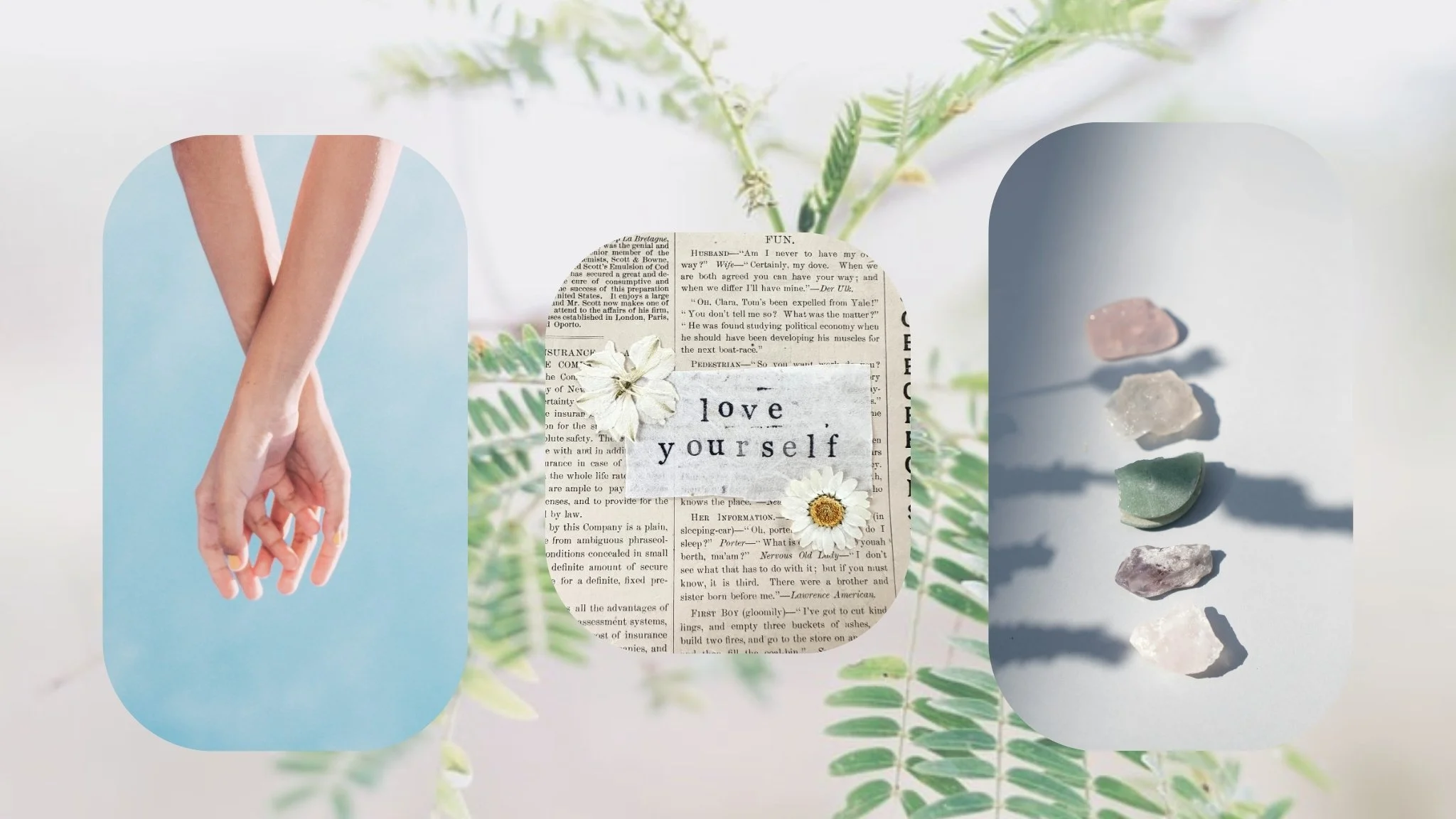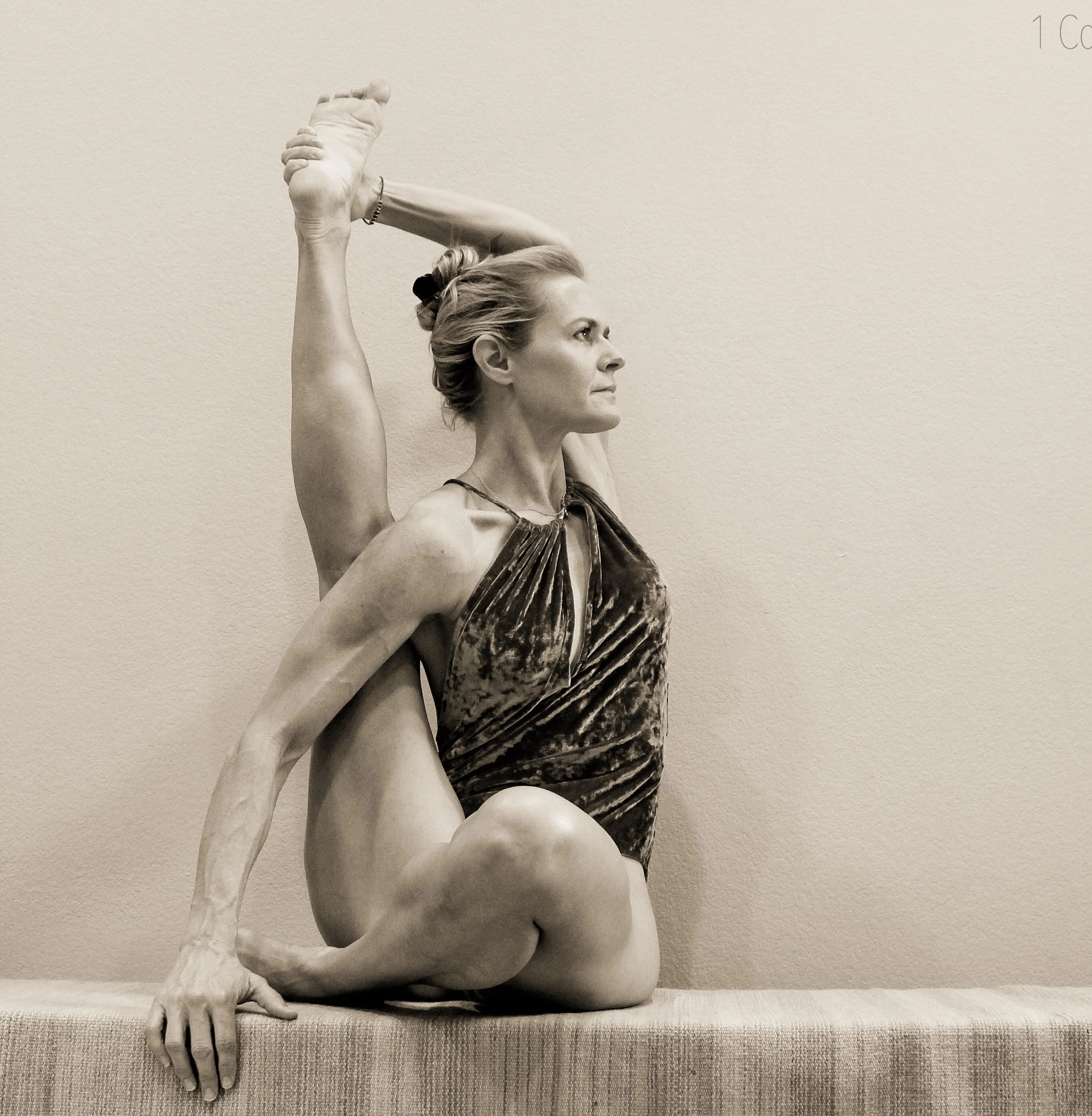Empathy without Burnout: How Yoga Teachers Can Cultivate Discernment
As yoga teachers and healing guides, we are often praised for our empathy — our ability to attune, to sense, and to respond to the needs of others. Many of us have heard, “You’re so sensitive,” or “You always know just what I need,” and while these affirmations can feel validating, they can also lead us down a path of energetic depletion if we’re not discerning.
Empathy is a beautiful and necessary trait in our work. It allows us to hold space with sincerity, to guide students with attunement, and to meet others in their vulnerability. But how do we know if we’re truly empathetic, or if we’ve crossed into “over-giving?”
How to Know if You’re Empathetic
Empathy is the capacity to understand and share in the feelings of another.
If you’re empathetic, you may:
Feel others’ emotions almost as if they are your own.
Sense the unspoken energy in a room before a word is said.
Find yourself deeply moved or impacted by others’ stories or suffering.
Often feel the need to help, soothe, or fix.
Struggle to say “no” even when your plate is full.
Empaths often have finely tuned nervous systems. You may be someone who needs more recovery time after social interaction, who has a rich inner life, and who’s hyper-aware of subtleties in tone, facial expressions, or body language. You might also notice that people come to you — not just for physical yoga guidance, but for emotional processing or energetic holding.
These are all powerful gifts. But gifts, like tools, must be used with awareness.
Giving With Discernment: Who, What, How Much, and Why
The hard truth is that not everyone is meant to receive your energy. Not every request needs to be met with a “yes.” As yoga teachers, we often feel a deep responsibility to serve — but without discernment, service can quietly erode our relationships and sense of well-being.
Who to Give To:
Begin to notice who replenishes you and who drains you. Do you leave conversations with certain people feeling seen, uplifted, or inspired? Do you walk away from others feeling heavy, tight in your chest, or resentful? You don’t need to cut everyone out of your life to stay protected, but you do need to prioritize energetic reciprocity. This doesn’t mean tit-for-tat; it means mutual respect and alignment.
What to Give:
Sometimes what someone is asking from us isn’t what they truly need — or what we’re meant to offer. We may sense they want emotional labor, attention, validation, or guidance that stretches beyond our boundaries. We can take a breath and ask ourselves: “Is this mine to give? Is this mine to carry?” We might offer our presence instead of a solution, or a simple “I’m here for you,” instead of a full-on rescue. We could also gently ask, “How can I best support you with this?” — an invitation that empowers them to take responsibility of their own healing.
How Much to Give:
This is where so many yoga teachers become depleted. We overextend because we can. We know how to hold space, how to stay centered in chaos, how to show up when others can’t. I once heard Prasadji say, "People look to you because you are the strongest of the weak.” I love this! But just because you can give doesn’t mean we should. Give what feels sustainable, not sacrificial. If our nervous system is already frayed, our giving becomes clouded with resentment, fatigue, or even hidden expectations.
Why You’re Giving:
This is the big one. Are we giving because it’s truly aligned? Or because we’re afraid of being disliked, left-out, abandoned, or judged? Many of us who teach yoga also carry old stories — childhood wounds that made us caretakers far before we were ready. If we notice ourselves giving in order to keep someone happy or to avoid guilt, it’s time to slow down. We deserve to give from a full, resourced space, and our students benefit most when we do.
The Cell Phone Battery Analogy
Think of yourself like a cell phone. Throughout the day, every interaction, task, and offering uses up a little bit of your battery. Teaching a class, answering emails, creating and sharing on social media, supporting a friend, managing your household — it all costs energy. When you receive a call (an invitation, a request, a demand), you could take a pause and check your battery level.
Are you at 80% and feeling generous and grounded? Wonderful.
Are you at 20% and telling yourself you “should” be able to handle it? Hold on.
Are you flashing at 5% with a red warning sign and still trying to be everything to everyone? It’s time to recharge.
This is not selfish. This is sacred self-stewardship. You wouldn’t expect your phone to run all day without a charge. Why would you expect that of yourself?
Caring for Yourself: Recharging the Battery
Empower Yourself through
Yoga teachers are often the last ones to receive the kind of care we extend to others. And yet, to stay in this work — to stay in service — we must learn to care for ourselves with fierce devotion.
Daily non-negotiables. Whether it’s your own practice, a walk in nature, a silent sipping your morning cup of tea, or five minutes of deep breathing, protect this time like your life depends on it. Because energetically, it does.
Boundaries are a gift. Saying no isn’t rejection; it’s honesty. When you say no to something that drains you, you say yes to your longevity and integrity. When we want to say no, but we say yes— our mind-body knows. We are forsaking ourself and this can lead to dis-ease. Please practice honoring when you want to say a clear and loving no.
Schedule white space. Build in time to do nothing. This is especially important after teaching or giving sessions. Let yourself reset.
Nourish your nervous system. Restorative practices, bodywork, salt baths, journaling, get a massage, and therapy can all help restore your charge. Your nervous system is your energetic infrastructure — it needs your tender love and care.
Final Thoughts: Empathy With Roots
Empathy is a sacred gift when it’s rooted in discernment.
Generosity is beautiful when it flows from fullness.
Service is sustainable when it includes you.
If you find yourself feeling overwhelmed, over-obligated, or invisible, it may be time to pause and ask: “Am I giving from a full battery, or am I trying to function on empty?” You don’t owe anyone your depletion. You are not here to be a martyr. Additional Resource on The Martyr (The Power of Archetypes) with Caroline Myss
You are here to be a light — and lights need fuel.
So the next time the “call” comes in — a student’s text, a friend’s invitation, a family member’s need — imagine looking at the battery icon in the corner of your inner screen. Let that be your guide. There is wisdom in that check-in. There is freedom in that pause. And there is deep empowerment in learning how to care for yourself first, not second or better yet— last.
Take this Fun Quiz


